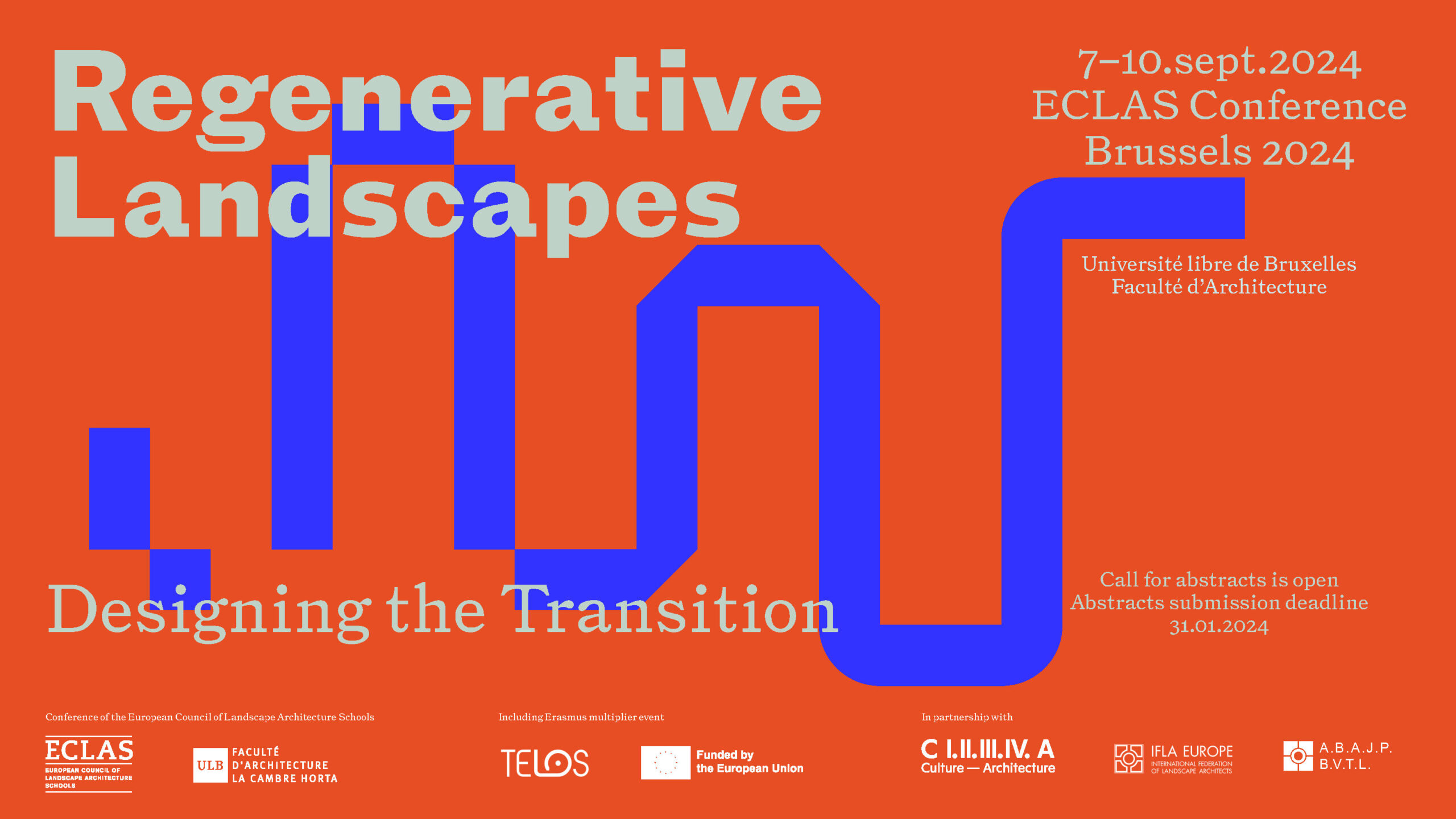RESEARCH THROUGH DESIGN
Landscape Architecture Doctoral Colloquium
When
Sunday, September 11th, 2022, University of Ljubljana
This colloquium is part of the ECLAS Conference 2022
Submission deadline: 30th May 2022
Target group
The colloquium is primarily aimed at current/prospective doctoral students and their supervisors, who are engaged with Research through Design (RTD) methods and projects. We also invite scholars who practice RTD at university either within or beyond the curriculum. The event may also be of interest to prospective doctoral students and supervisors who are interested in knowing more about RTD methods and practices, as well as to those who would be willing to share their experiences.
The overall objective is to discuss methodological aspects of RTD within the European landscape architecture research community, and to share experience and views about how RTD methods can be informing and inspirational for research in our field.
Colloquium Focus
The colloquium will focus on presentations of research which fall into the category of RTD. It aims to gather and discuss methods of RTD in the field of Landscape Architecture. Design research in the field of LA is an interdisciplinary whole with an autonomous form of knowledge, its own modes of inquiry, and its own epistemology. It often involves a non-linear and complex interplay of moments of reflection and projection.
While the application of methods found in, or developed by, associated disciplines has become common practice in landscape architecture research, the planning and design process itself has developed into a research method in its own right.
The question is:
What new knowledge landscape architecture can create through design?
The colloquium intends to look into the special nature of design as well as the research methods that potentially reveal the uniqueness of landscape architectural knowledge. The approach examined in the colloquium is only in the evolutionary stage of development and, therefore, it is viable to look at a variety of approaches. This colloquium will shed some light on the topic and explore the potential to answer the question above by means of interactive discourse.
All students and researchers in LA are welcome to join the discussion.
Format and activities
The colloquium will include a combination of individual doctoral presentations (followed by mentoring comments and suggestions), as well as presentations about the practice of RTD . The activities will, in turn, lead to a group discourse on RTD methods. However, the core part of the colloquium will take an open discussion format in which participants will share their experiences and develop critical perspective on design research. Through this, we hope to address the diversity of ideas of how to go about RTD as well as issues pertaining to the needs and questions that usually arise among the community of landscape architecture researchers present at ECLAS conferences. The conclusions will be further developed during the conference’s closing round table.
RTD doctoral studies in all phases of their research as well as as well as supervisors are warmly invited.
In addition, a workshop will be organised by the University of Wageningen UR. This will be open to anybody who would like to participate. More information to come soon.
How to get involved as a doctoral student
Current and prospective doctoral students are invited to present a short 3-5 slide presentation on their methodical approaches. To apply, please fill the form linked below and indicate your participation as a doctoral student. In the form, please provide a title and an abstract of your doctoral thesis: a short description of the thesis problem and RBD methods (up to 500 words). The following guidance-questions may be helpful:
- What is your RTD question and which research strategies & approaches have you selected to answer this question?
- Why, and on the basis of which methodological consideration, have you chosen this RTD strategy and/or this particular RTD method?
- Which type of evidence are you looking for?
- Describe your case study (if any) and present anticipated results.
In this context it might also be useful to explain your way of operationalizing the theoretical concepts that are included in your research question.
Submission deadline: 30th May 2022
Submission form: link
